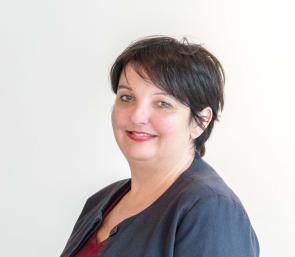
French as a foreign language
INFORMATIONS
-
Objectives and content
Acquisition of a level of oral and written language proficiency enabling students to follow a2nd cycle course at the end of their1st cycle (methodology courses, "practical aspects of the profession" lectures, completion of personal research work, etc.). The aim of the2nd cycle course is to improve students' command of the written French language with a view to completing their personal research project. Introduction to French culture.
Materials :
- Textbooks corresponding to levels B1 and B2 with a view to acquiring the grammatical structures and vocabulary needed to develop a good command of the language;
- Various texts (literary extracts, press articles, concert programmes, reviews, biographies).
Content:
- With the emphasis on the need to develop good writing skills, the first stage involves knowing how to express, in a short text, a personal point of view on a general theme or one related to musical life in the context of an essay, letter or article (B1 level). Then, in a second stage, write an argumented position: a contribution to a debate, a formal letter, a critical article, etc. (level B2).
- Depending on the oral command of the language, a complementary "oral expression" course may be offered at the teacher's discretion.
-
Entrance terms and conditions
In the1st cycle, this course is compulsory for all foreign students (non-French speakers: see Modern Language pathway) until they obtain the 'advanced' level certificate. This certificate validates the required modern language for all1st and2nd cycle and higher cycles.
In the2nd cycle, this course is open to students who were exempted in the1st cycle, to students who have obtained the "advanced" level Certificate, and to students in the2nd cycle who have level B2[1] in September.
This course is compulsory for new students of foreign nationality (non-French speakers: see Modern Language pathway) entering directly into the2nd cycle and optional for all other2nd cycle students (see Modern Language pathway) (with the exception of students in the pedagogy and sound professions departments).
Exemption from FLE may be granted in consultation with the teacher:
- Bilingual students who speak French as one of their two languages;
- Former Erasmus students who have already obtained the CNSMDP FLE certificate.
Students on international exchange or enrolled in the Erasmus programme may take a French course according to their level: 'beginner', 'intermediate' and 'advanced', subject to availability.
Orientation test
This orientation test, organised in September, is compulsory for all non-French-speaking students newly admitted to the Conservatoire (1st cycles and2nd cycles supérieurs, cycles supérieurs). It consists of a written test and an oral interview.
Once they have passed the test, students with the required level may sit the exemption exam for the "Advanced" Certificate, organised in October 2021 (written test + oral interview).
Other students will be assigned to a course corresponding to their level: 'beginner', 'intermediate' or 'advanced'.
-
Assessment terms and conditions
Continuous assessment accounts for a third of the final mark for the "advanced" level certificate. It is the average of all the marks obtained during the course (vocabulary, grammar, written and oral comprehension tests, presentations, essays, etc.).
The2nd cycle course is assessed by continuous assessment. It takes place at the end of the "advanced" level and accounts for two-thirds of the final mark for the Certificate.
FINAL EXAMINATION
Written tests of syntax, comprehension and writing skills.
Catch-up and exemption examination
A catch-up exam (corresponding to the exemption exam) is offered at the start of the school year for students who did not obtain their Certificate in June.
The content of this examination is identical to that of the final examination for this Certificate (written tests).
An oral interview lasting 15 minutes is added to the written tests for the exemption exam.
-
Reward
1er cycle : Certificat mention Très Bien, Bien ou Assez-Bien. 2e cycle : Attestation.
-
Erasmus
Yes


